Did you know that 75% of trafficking victims are girls and women? That 1 in 3 women globally experience sexual or physical abuse?
The risk factors that contribute to the likeliness of a women being abused or exploitation stems from being marginalized in society – from living in poverty to not having proper access to education, to living with a disability.
Freeleaf works to end exploitation and abuse against women by providing employment to at-risk women. From homeless women, to sexual assault survivors to single moms, Freeleaf provides a platform to marginalized women in Asia to access the tools and resources they need to reach economic independence.
Through providing fair wages and working conditions, holistic care (including counseling and medical care), and encouragement to be creative and bold, Freeleaf is changing the lives of the women they work with.
Their #knotforsale campaign is an incredibly empowering message that women are not objects for sale. The double meaning of their use of the word “knot” comes from their handmade products being made from a single strange that is knotted to make beautiful jewelry and homeware accessories.
See below a Q&A with Adisyn Pyles, founder of Freeleaf Ltd.
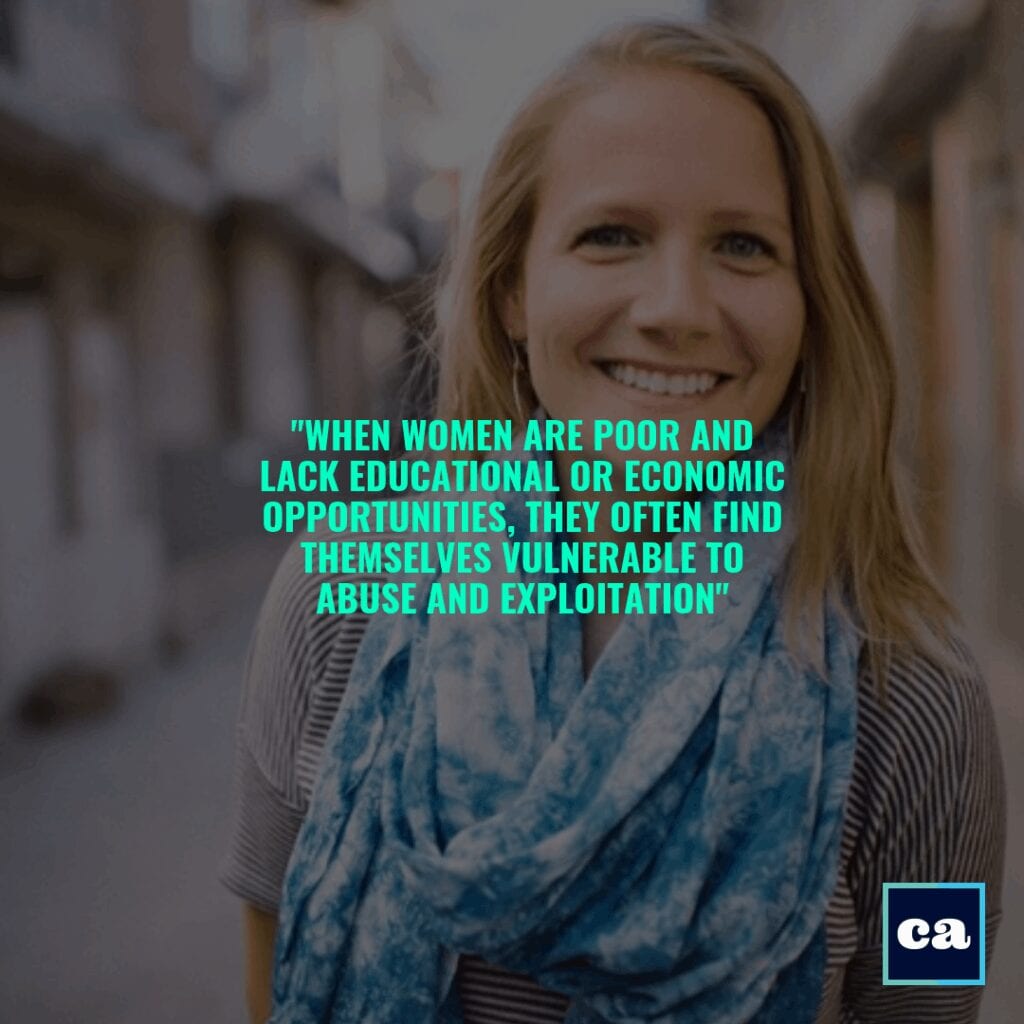
Tell us about your personal journey! What inspired you to start a social impact fashion brand?
I never thought of myself as an entrepreneur. Being a natural introvert, a cautious decision maker, and a lover of simplicity, I always assumed I wouldn’t make a very good front-person or leader. But I have always been a rooter for the underdog.
In college I studied International Studies & French and envisioned myself moving to French-speaking Africa to work in community development. But when I graduated in 2011 and applied to work for non-profits and social enterprises, nobody would hire me because I didn’t have any overseas experience! Crushed, I decided to spend a gap-year in Asia before I planned to go to grad school. Seven years later and here I still am.
A few years ago, I met a local woman named JiaYi (see her story here!). We realized that we both had a passion for women-in-need in the city, and slowly began talking to at-risk, abused, and exploited women to gather more information about what their needs were. It didn’t take long to realize that the root of so much abuse and exploitation was economic.
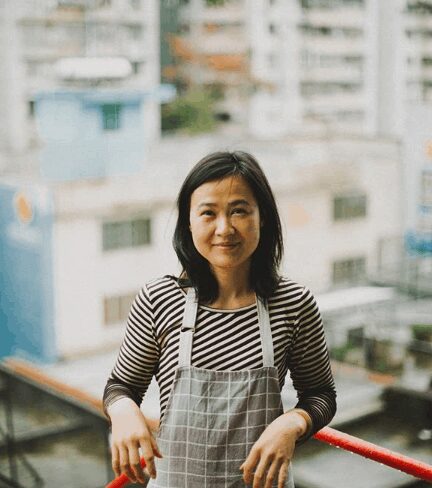
When women are poor and lack educational or economic opportunities, they often find themselves vulnerable to abuse and/or exploitation. Slowly, we realized that if we wanted to create a safe space for women to heal in a sustainable and substantial way, we didn’t need to create some non-profit or charity program—we needed to create a business. So Freeleaf was born June 2016.
Why did you choose to create products knotted from a single strand?
Knotting is an ancient art-form that has been practiced in China and all over Asia for centuries. In addition to tying knots for functional purposes, knots have been used to show elegance and express blessings. Freeleaf bases the design of all of our products in accordance with this rich history and significance of the Chinese knot.
In addition, the process of knotting can be quite messy as a single strand of rope is molded to become something beautiful. For example, our large cotton rug uses over 200 feet of rope! Throughout the process of tying the rug’s knot, it’s easy to feel like you’re making a bigger mess than you started with.
However, with patience and dedication, the knot slowly begins to come forth and eventually you’re left with a stunning product. I find that this process so often mirrors our lives—if we’re willing to be patient and keep walking through the messiness or chaos of whatever’s going on around us, I believe that beauty always wins.
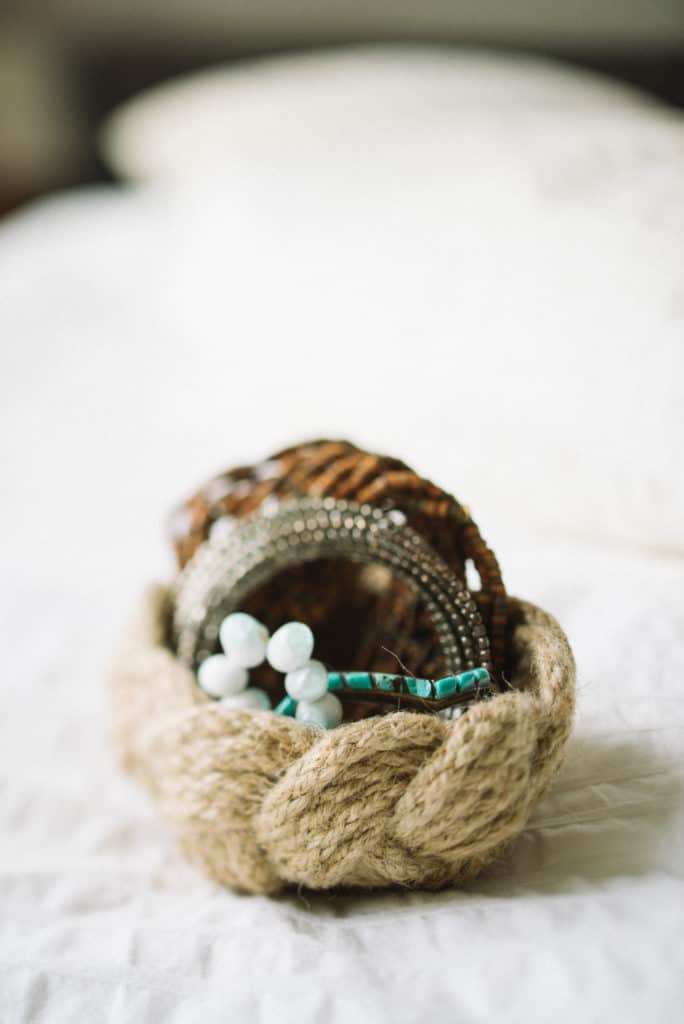
How did you get started with growing your community of women?
Being women ourselves, JiaYi and I knew we wanted to partner with other women to start our company. In order to start building relationships in vulnerable communities, we just began networking with people we knew who were already involved. This looked like coming alongside existing social workers, organizations, churches, and individuals to learn from the populations they were serving.
We meet our employees/ artisans through a variety of ways, but primarily through word-of-mouth and referrals.
When a woman contacts us for help, we do an initial interview to assess what her situation is and determine if we are able to hire her or whether she would be better served through a network of other companies or organizations we know.
Who trains your female workers to create Freeleaf handmade products?
Initially, learning to make the products was a shared process between myself, JiaYi, and our first staff, Lin. None of us really knew what we were doing! Today though, Lin is our production manager and primary designer of all products. Over the last 3 years she has been the trainer for all new staff. Today, she’s in the process of teaching another staff how to train.
This is a perfect example of our model that always encourages growth and delegation / giving responsibility to staff. We don’t just want to “empower” the artisans as if we have the power and are generously giving them a small portion. Instead, as a small company, we rely on their strength and skill in order to grow together!
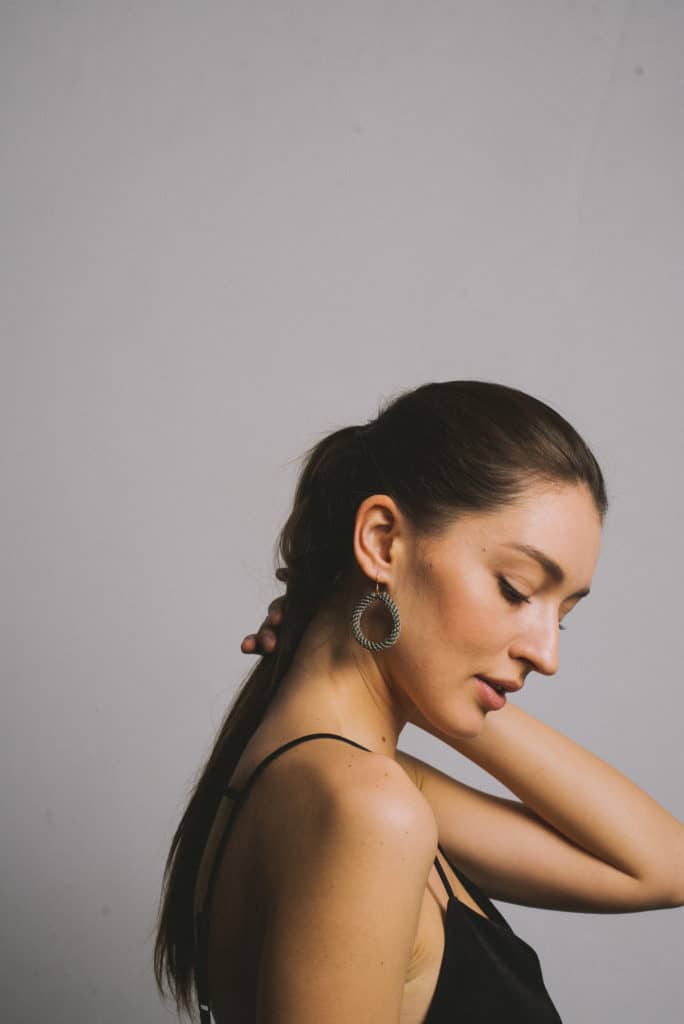
What does your product design process look like? How do you inspire your artisans to get creative with design?
Our design process usually involves several meetings to share inspiration and come up with a list of what products or innovation we’d like to begin exploring. Our local staff then source some material options, and Lin gets to work making and perfecting different prototypes until we end up with a design that we all love. It’s a long process as we’re all wearing multiple hats and don’t usually have concentrated time to really FOCUS on new designs, but the collaboration is really invigorating.
Tell us how you approach holistic care and the resources you have available for your artisans.
Ultimately, we don’t only want to provide employment to women. We want to see women experience holistic freedom—physically, economically, relationally, mentally, spiritually, emotionally, and more. Because of this, we have developed holistic care programs in partnerships with other entities to address the non-economic struggles that our employees often face.
To do this, we provide each woman with safe shelter in a company dormitory, help with medical care, weekly professional counseling, coaching/mentorship, educational scholarships for their children, vocational training, and constant encouragement. Ultimately, this holistic viewpoint is designed to help women grow to understand their intrinsic value and give them the tools and confidence to stand firm and achieve their dreams—whether they stay at Freeleaf or move on to somewhere/something else.
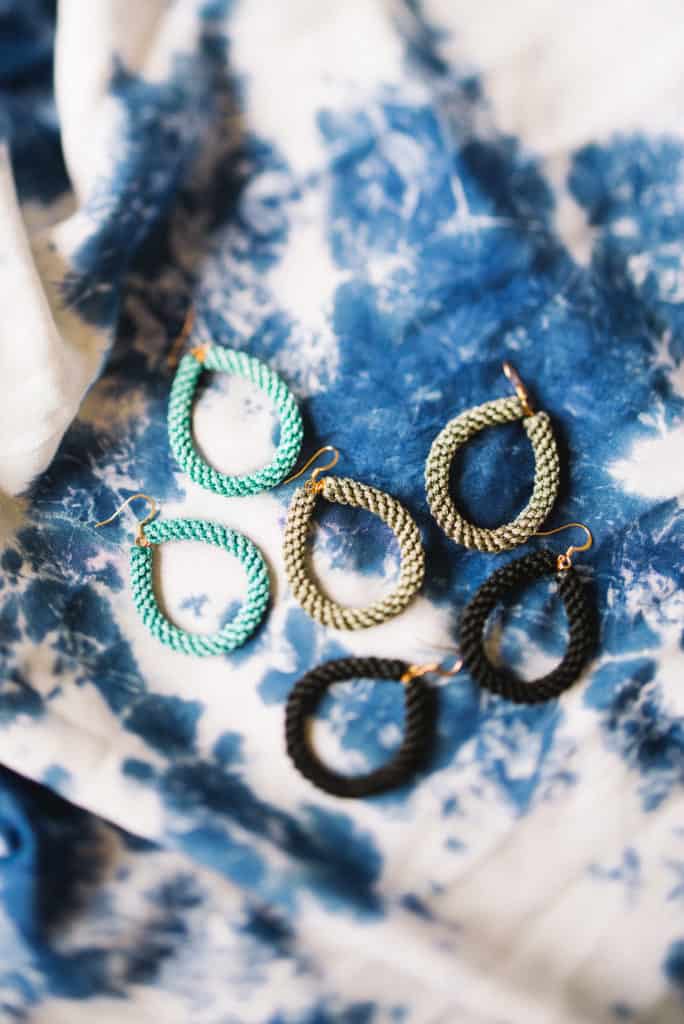
What are some of the biggest transformations you’ve seen among the women you work with since they started at Freeleaf?
It’s difficult to focus on one story, and we work very hard to make sure that our staff’s confidentiality is protected, but I’ll share one staff’s own words with you– this is Lin’s, our production manager & designer, story:
“In 2015, I was at my most depressed and disappointed moment, with no idea what I was going to do in the future. When I met the Freeleaf team, not only did they not discriminate against me because of my past, but they welcomed me to join their team and their new company.
Together, we learned how to make Freeleaf’s first products– knotted rugs. Over the last 2 years I have been able to develop this skill, and today I design many of the new Freeleaf products! If I didn’t start working with Freeleaf, I would still be working in an environment full of abuse and exploitation. I have come to believe, fully, that I can be a good staff and a good mother and a good future wife. Before Freeleaf, my life was so dark, but today it is full of color and hope for the future”
Personally, as a new mother myself, I love journeying through motherhood with these wonderful women. Watching them overcome their challenges to take care of their sweet children and celebrating it all together is one of my favorite things.
Listen to our Causeartist podcasts here.
Latest Stories
- What are Plant Based Fibers
- 7 Sustainable and Eco Friendly Floss Options
- Anshul Magotra: How Social Innovation Circle Supports Impact Entrepreneurs
- Causeartist Brief – U.S. Department of Energy x Google, Bezos Centers for Sustainable Protein, Oregon Biochar Solutions
- Evidencity: Pioneering the Fight Against Modern Slavery Through Tech








